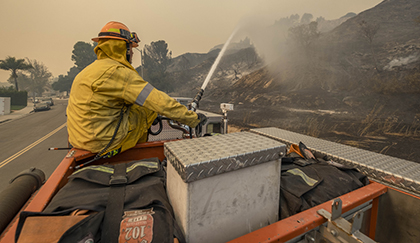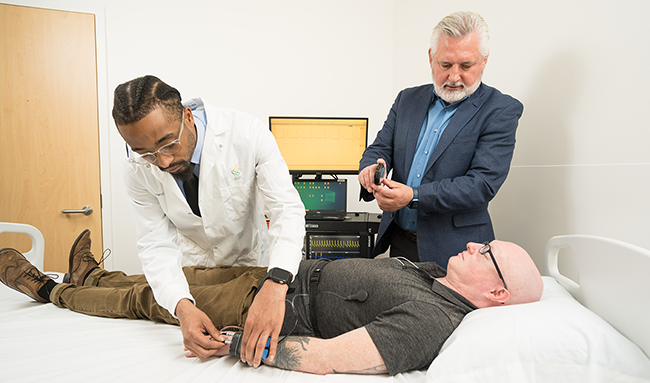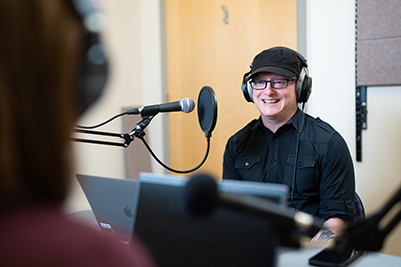Research Themes

Supporting the workforce by providing research and evidence-based practices focused on employee health, safety, and well-being.
Many factors contribute to the health, safety, and well-being of the workforce. Sleep, nutrition, environmental conditions, and workplace policies and practices are all critical to supporting employee health and productivity.
Institute researchers work in basic, clinical, and applied research to generate new knowledge and workplace solutions that promote health, safety, and well-being. Our experts understand how work impacts human biology, psychology, and social structures. We collaborate across disciplines and with community partners to address the health-related challenges facing the 21st century workforce.
Our research themes
Environmental exposure
Environmental extremes, including exposures to ultraviolet light (sunlight), water and air pollution, heat and smoke, and toxins, pose serious health risks to certain working populations. Scientists at the Institute characterize these risks and the mechanisms by which they adversely impact health.

Sleep and circadian health
Scientists at the Institute study the physiological effects of behaviors, including sleep, work schedules (including the body’s internal circadian clock), nutrition, exercise, and tobacco and cannabinoid use, to better understand their impact on worker health, safety, and well-being.

Safety at work
Occupational fatalities and injury are among the gravest threats to workers. To reduce this burden on worker well-being and productivity, researchers at the Institute investigate the causes and prevention of workplace injuries and fatalities, as well as workplace safety climates.

Supportive workplace practices
Factors including long work hours, workload, poor communication, and job insecurity all contribute to employee stress and increase the likelihood of workplace injuries and illness. At the Institute, scientists conduct workplace research that delivers support promoting worker physical and mental health.

Learn more about our work

Newsletter
Explore professional development opportunities, the latest updates from the Oregon Healthy Workforce Center and the Occupational Public Health Program, a research snapshot, and upcoming occupational health-focused events.

Blog
The Oregon and the Workplace Blog features the latest from OccHealthSci research, professional development opportunities, and valuable insights from disciplines associated with occupational health, safety, and well-being.

Podcast
The What's Work Got to Do with It podcast, produced by OccHealthSci, brings together occupational health, safety, and well-being experts to discuss the latest topics relating to worker health, well-being, and safety in Oregon and beyond.